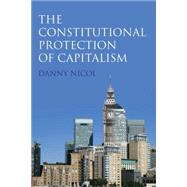
What is included with this book?
| Preface | p. vii |
| Table of Cases | p. xi |
| Table of Legislation | p. xv |
| Transnational Regimes and the Constitution | p. 1 |
| Two Conceptions of Neoliberalism | p. 3 |
| The Idea of a Constitution | p. 5 |
| A Revolution from Above | p. 12 |
| Transnational Constitutionalism as Insurance | p. 19 |
| The Criterion of Democracy | p. 21 |
| The British Model and Contestability | p. 24 |
| The British Model and Relative Ideological Neutrality | p. 31 |
| The British Model and Accountability | p. 34 |
| Limited Democracy: The Triumph of Hayek | p. 38 |
| Transnational Democracy: Hayek's Heirs? | p. 39 |
| Markets as Democracy? | p. 43 |
| British Exceptionalism? Britain, France and the Ratchet Effect | p. 44 |
| The Ambit of the Argument | p. 46 |
| The World Trade Organisation and the Sanctity of Private Enterprise | p. 47 |
| Assessing the WTO | p. 48 |
| Britain and GATT 1947 | p. 51 |
| GATT: Evolving towards Bindingness | p. 56 |
| From GATT to WTO | p. 59 |
| The World Trade Organization | p. 60 |
| WTO: The Dispute Settlement Understanding | p. 62 |
| The Terms of WTO | p. 68 |
| GATT and Related Agreements | p. 68 |
| GATS | p. 70 |
| Public Procurement | p. 75 |
| Subsidies | p. 77 |
| Conclusion | p. 79 |
| The European Union: A Faithful Expression of the Capitalist Ideal? | p. 82 |
| The Original Indeterminacy of the European Project: Articel 345 TFEU | p. 85 |
| Resolving the Indeterminacy | p. 88 |
| EU Law as British Constitutional Law | p. 90 |
| The Free Movement of Goods: Control of Imports | p. 94 |
| Cassis de Dijon | p. 95 |
| Goods, Regulation and the Corporate Role in Constitution-Building | p. 95 |
| Standardisation: A Privatisation of Governance? | p. 99 |
| Free Movement Rights versus Social Rights | p. 101 |
| From Free Movement to a European Economic Policy | p. 104 |
| Public Monopolies and Privatisation | p. 107 |
| Article 106 TFEU | p. 107 |
| EU Legislation | p. 111 |
| Public Procurement | p. 115 |
| State Aid | p. 117 |
| Defining State Aid: Article 107(1) TFEU | p. 120 |
| Justifying State Aid: Article 107(3) TFEU | p. 121 |
| State Aid and the Credit Crunch | p. 124 |
| Neoliberalism and the Open Method of Co-ordination | p. 124 |
| Conclusion | p. 126 |
| 'The Fundamental Right of the Well-to-Do': Property as a Human Right | p. 128 |
| Human Rights at the Service of Neoliberalism | p. 129 |
| Property and Democracy: Four Possibilities | p. 131 |
| Disagreements over the Right of Property Ownership, 1950-51 | p. 134 |
| Predominant Purpose of the Property Right: The Protection of Existing Entitlements | p. 136 |
| Transforming the Property Right | p. 138 |
| The Concept of 'Fair Balance' | p. 138 |
| 'Fair Balance' Fused with Proportionality | p. 140 |
| Proportionality and Compensation | p. 142 |
| The Elasticity of 'General Principles of International Law' | p. 146 |
| Compliance: The Evolution of Effective Enforcement | p. 148 |
| Conclusion | p. 151 |
| Neoliberalism as the Constitution | p. 152 |
| The Binding of Parliament | p. 155 |
| Dismantling the Teleological State | p. 159 |
| Bibliography | p. 165 |
| Index | p. 183 |
| Table of Contents provided by Ingram. All Rights Reserved. |
The New copy of this book will include any supplemental materials advertised. Please check the title of the book to determine if it should include any access cards, study guides, lab manuals, CDs, etc.
The Used, Rental and eBook copies of this book are not guaranteed to include any supplemental materials. Typically, only the book itself is included. This is true even if the title states it includes any access cards, study guides, lab manuals, CDs, etc.